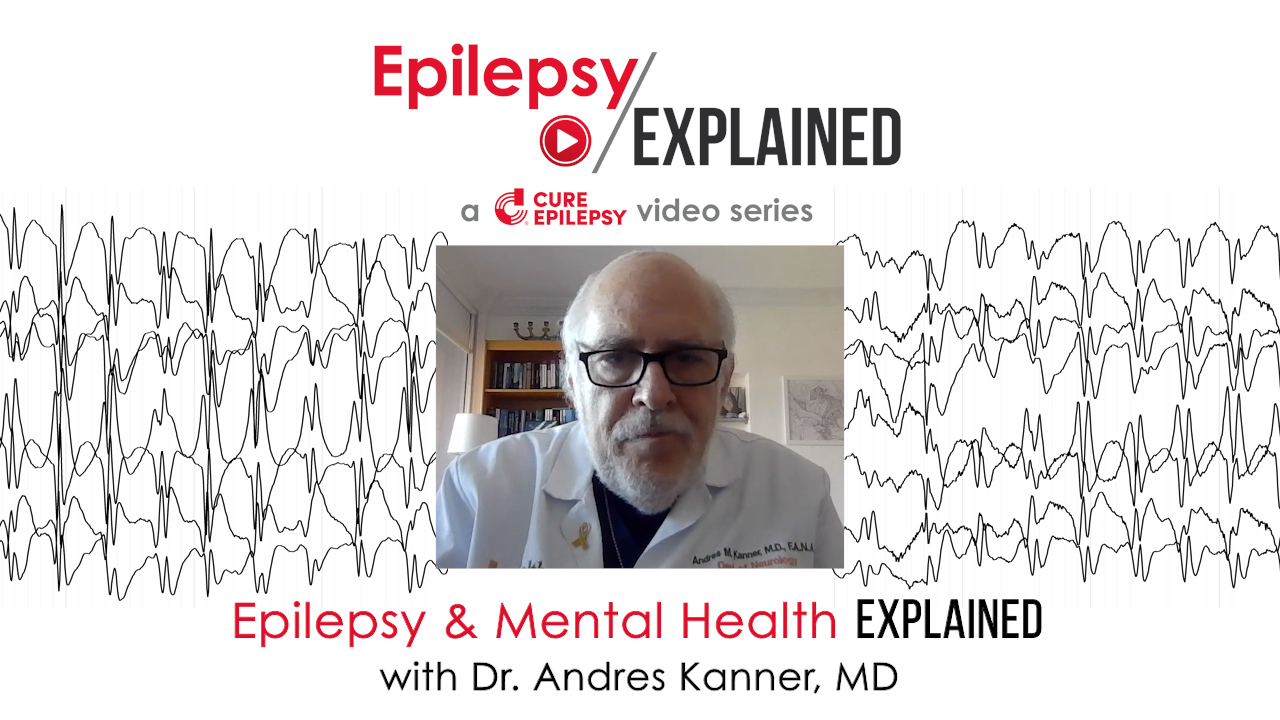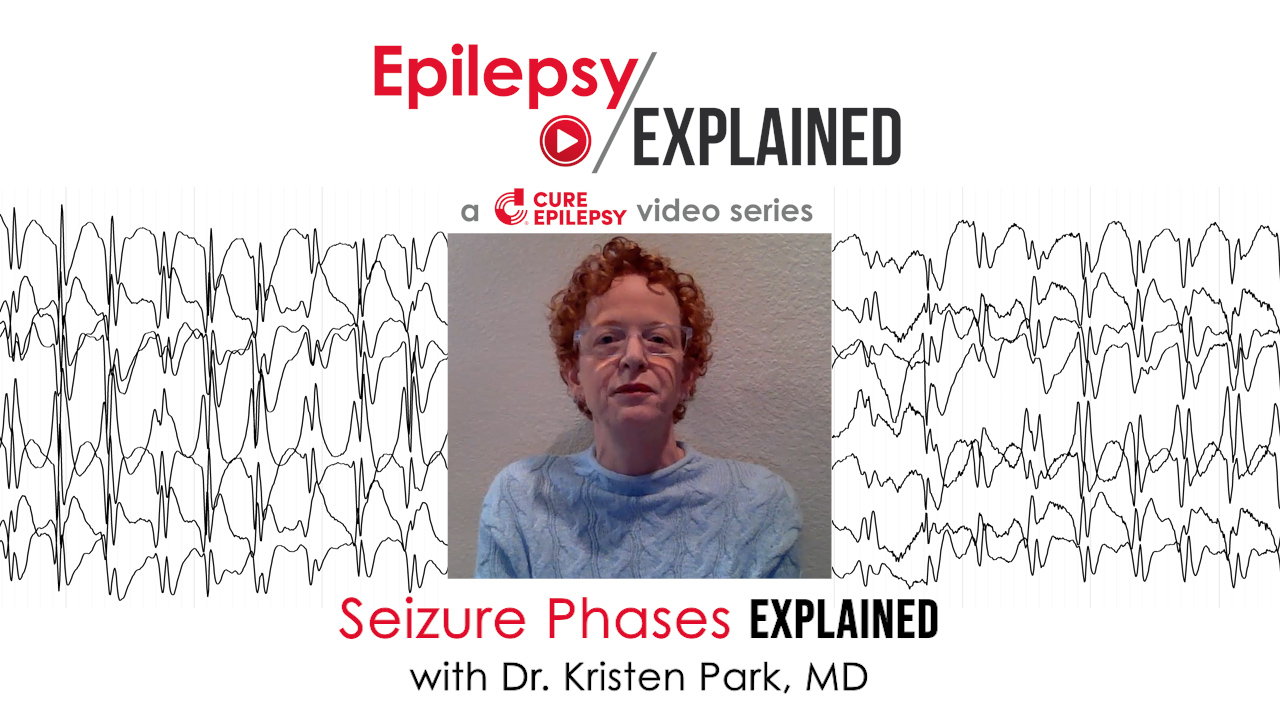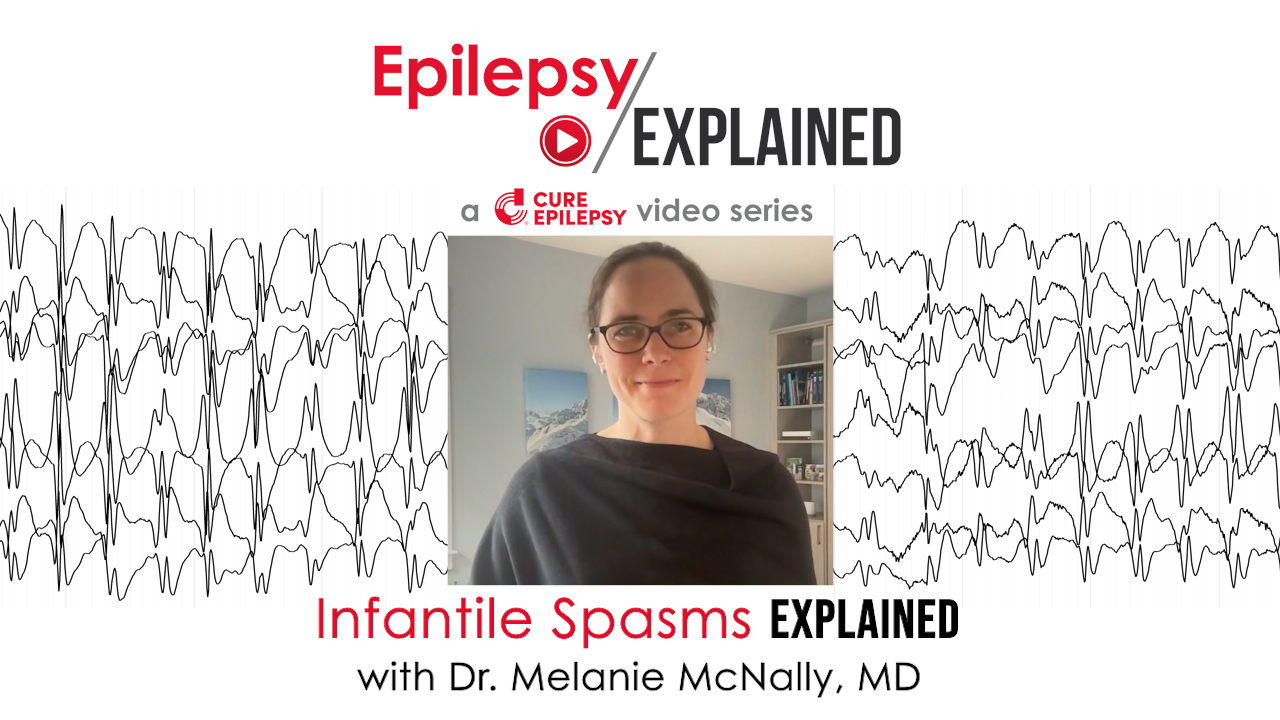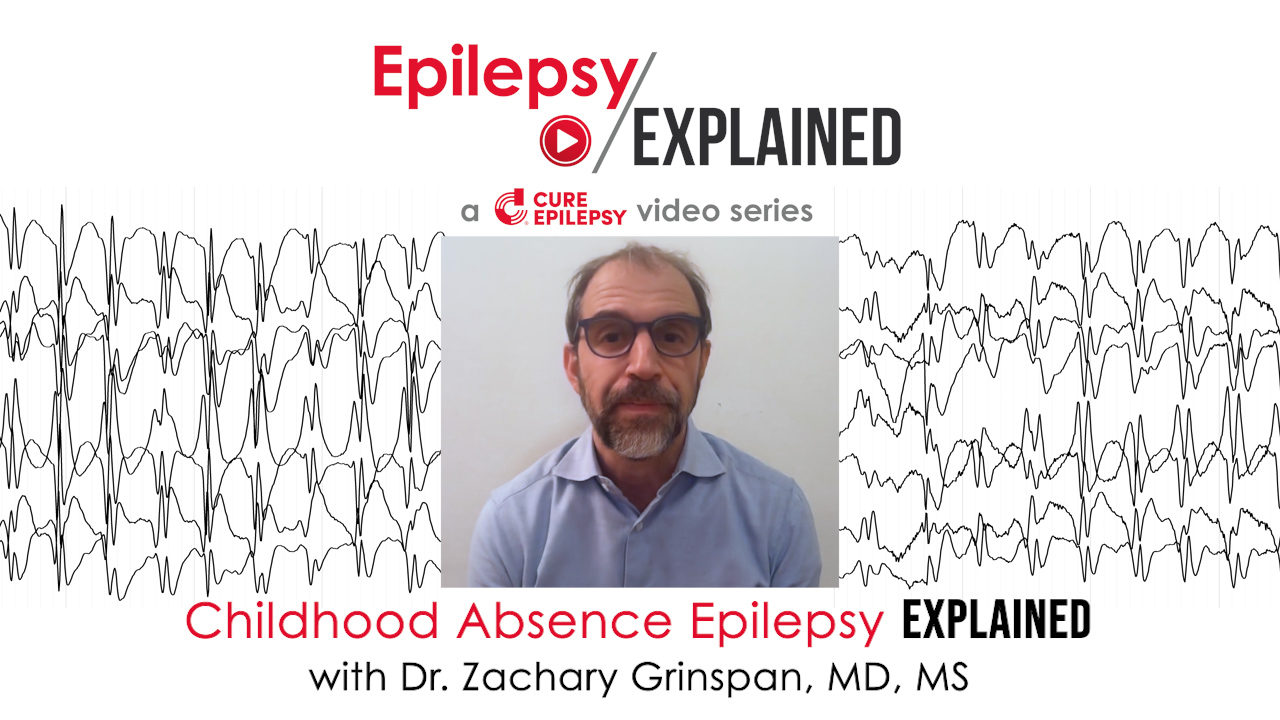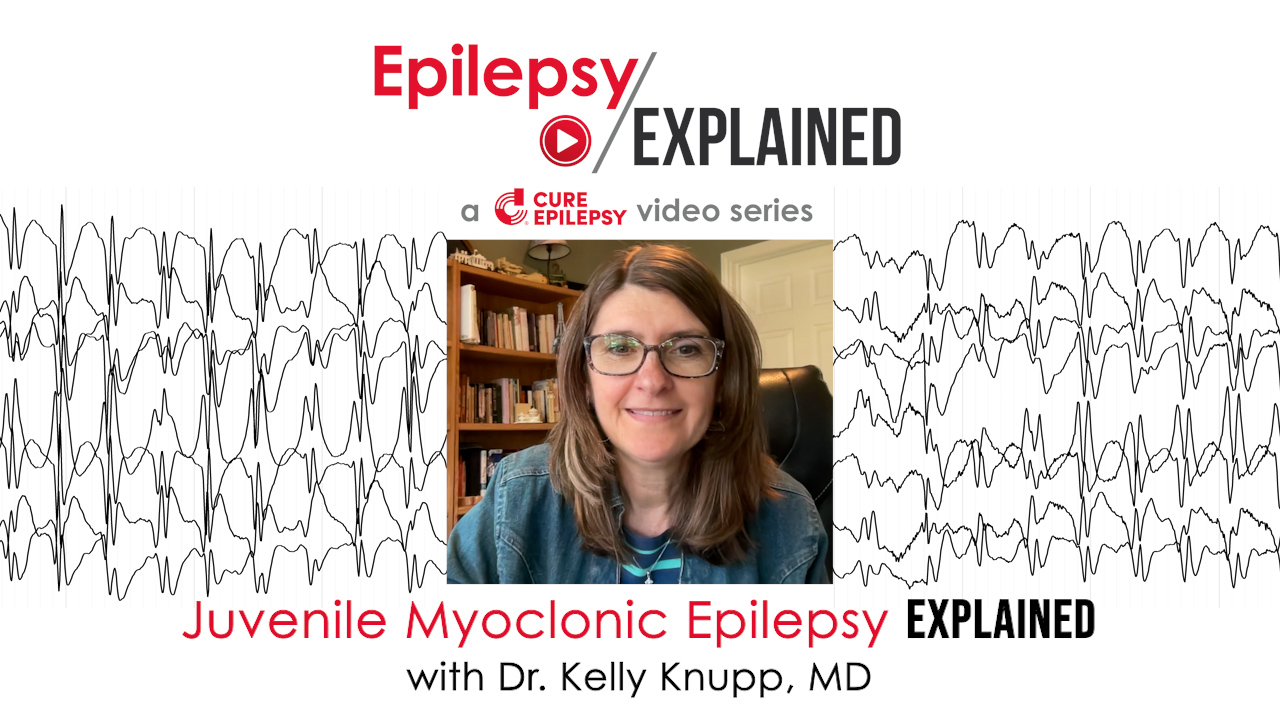The Relationship Between Epilepsy and Mental Health
This month on Epilepsy Explained in recognition of May as Mental Health Awareness month we focus on the relationship between epilepsy and mental health. Dr. Andres Kanner, Professor of Clinical Neurology and Director of the Comprehensive Epilepsy Center at the University of Miami Miller School of Medicine, answers your questions about epilepsy and mental health.
In “Epilepsy and Mental Health Explained”, Dr. Kanner answers the following questions:
0:16 What kind of emotional impact can a diagnosis of epilepsy have on an individual and a family?
1:40 In general terms, what do we know about the relationship between epilepsy and mental health?
3:57 Do the physical impacts of epilepsy cause mental health issues, or are mental health issues the result of stigma and epilepsy’s social impact?
5:54 How can I determine if my mental health issues are being caused by my epilepsy or by the medication that I’m taking for my epilepsy?
8:33 Are certain kinds of epilepsy or specific types of seizures known to cause mental health issues?
10:04 In teens with epilepsy, how can you tell if they are experiencing mental health issues or if it’s simply typical adolescent moodiness and behavior?
12:07 Are there psychiatrists who specialize in treating people with epilepsy?
13:46 Can medications prescribed to treat psychiatric conditions have negative impacts on epilepsy and seizures?
Look for new episodes of Epilepsy Explained on the third Wednesday of every month on CURE Epilepsy’s YouTube Channel and on our website at: https://www.cureepilepsy.org/epilepsy-explained/
If you would like to submit questions for future episodes of Epilepsy Explained, please go to: https://www.cureepilepsy.org/epilepsy-explained/
Video Transcript
What kind of emotional impact can a diagnosis of epilepsy have on an individual and a family?
Dr. Andres Kanner:
A diagnosis of epilepsy is expected to have an impact on the individual with epileptic seizures and their family because when you have seizures, you go through a process where you lose predictability of your life, because seizures can occur out of the blue, and even when we start treatment for the seizure disorder, there is always the fear that a seizure may recur. And it is impossible for us to know when it’s going to recur or if it’s going to recur. And this does not only impact the patient, but it impacts family members, and sometimes the impact is way greater among family members, particularly parents in the case of children, or spouses. And so part of processing the diagnosis of epilepsy implies that you have to come to terms with this reality and that you have to be aware that you’re going to feel anxious for a period of time and have the concern for which you may want to be very open about those concerns and fears among the different family members, and with your doctor.
In general terms, what do we know about the relationship between epilepsy and mental health?
Dr. Andres Kanner:
There is a close relationship between epilepsy and mental health, as evidenced by the fact that one in out of every three people with epilepsy at some point in their lives will experience psychiatric conditions, most of the time presenting as a depressive disorder or an anxiety disorder, and in the case of children, as attention deficit hyperactivity disorder. The other evidence of the close relationship between mental health and epilepsy is that people who have a history of mood disorder, anxiety disorder or attention deficit disorder compared to the general population have an increased risk of developing epilepsy, and people with epilepsy have an increased risk of developing one of these psychiatric conditions. Thus, there is a bidirectional relationship between epilepsy and the psychiatric disorders. Now, I don’t want people to be left with the idea that if you’re going to have epilepsy, you’re going to necessarily experience psychiatric disorders. That is a misconception that often has been made, but we need to be aware that this is something that can happen because when you develop one of these conditions like a depressive disorder, an anxiety disorder, you need to treat those conditions because they are going to affect your quality of life even more than the actual seizure disorder. And you have to be very open with your doctor if you start noticing that you’re experiencing any symptoms of depression, anxiety, as these can be easily treated and your quality of life can improve significantly.
Do the physical impacts of epilepsy cause mental health issues, or are mental health issues the result of stigma and epilepsy’s social impact?
Dr. Andres Kanner:
I think the answer is both. The causes of psychiatric phenomena in people with epilepsy is a result of psychosocial issues, the reaction to the diagnosis of epilepsy, the adjustments that sometimes people with epilepsy have to make that requires a change in their activities, their job, their inability to drive, and therefore they become dependent on others. And then there is the impact of the epilepsy. That can increase the risk of developing, as we had said, episodes of depression, anxiety, sometimes psychosis. Then there is the family psychiatric history, which increases the likelihood or the risk that an individual with epilepsy may experience psychiatric conditions. So it’s a multifactorial process, so it’s not just one thing, it’s multiple things. So you have to look at the psychosocial aspects of the person’s life, how it has changed, how the individual has adjusted to the diagnosis of epilepsy. How has the family dynamic changed to the reality of having a loved one with epilepsy? And then considering also the changes associated with the abnormal electrical activity of the brain that cause chemical changes in the brain that result in psychiatric symptoms.
How can I determine if my mental health issues are being caused by my epilepsy or by the medication that I’m taking for my epilepsy?
Dr. Andres Kanner:
Well, I think it’s very important to consider both possibilities. It’s important that when you’re started on anti-seizure medication, that the anti-seizure medication that you’re prescribed sometimes can have what we call negative psychotropic properties because they can cause psychiatric symptoms. Now, these psychiatric symptoms are more likely to occur in people who have a previous psychiatric history, a family psychiatric history or a current psychiatric history, and we have identified those type of anti-seizure medications that have these negative properties. And so in those situations, the neurologist has to always investigate your previous psychiatric history or your family’s psychiatric history and then decide, well, these may not be the best treatment for you because you’re at risk of developing psychiatric symptoms.
On the other side, there are anti-seizure medications that are also being used for the treatment of mood and anxiety disorders that are effective anti-seizure medications, and if you in fact have had a history of those conditions or have a current condition with mood disorders or anxiety disorders, you may benefit from those anti-seizure medications, because in those instances, you’d be killing two birds with one stone. You would be deriving benefit from one medication that would provide you treatment for the epilepsy and also the psychiatric condition.
Now, the epilepsy can cause psychiatric symptoms over a long period of time in people who have not responded to medication, and that can be presenting in the form of symptoms that occur after the person had had seizures or flurries of seizures, and they start developing symptoms of depression or anxiety or irritability or even psychosis, like a couple of days after having seizures, they last two to four days and then they go away. So that is an example of how the seizure disorder can directly generate psychiatric symptoms.
Are certain kinds of epilepsy or specific types of seizures known to cause mental health issues?
Dr. Andres Kanner:
So people with what we call temporal lobe epilepsy have been found to have an increased prevalence of mood and anxiety disorders, whereas people who have epilepsy originating or involving the frontal lobes, they’re more likely to have problems with short attention span that can mimic an attention deficit disorder. Likewise, people that have what we call a generalized epilepsy, and the generalized epilepsy tends to affect the frontal lobes, also can present more frequently with problems with attention span and clinical pictures that are similar to an attention deficit disorder. However, the prevalence of these psychiatric disorders can be seen in all type of epilepsy. So people with generalized epilepsy also can have mood and anxiety disorders, and people with temporal lobe epilepsy can also have attention deficit disorders, so it’s not specific to one type of epilepsy.
In teens with epilepsy, how can you tell if they are experiencing mental health issues or if it’s simply typical adolescent moodiness and behavior?
Dr. Andres Kanner:
Having epilepsy when you’re an adolescent can be quite distressing, both to the adolescent and to the family. Adolescents like to be independent, they like to feel that they know better, and it is normal for adolescents to sometimes be rebellious. However, you can establish that something is not right when you see that the magnitude of the irritability, the poor frustration tolerance, the impulsive behavior, goes beyond what you would expect to see in normal adolescence. You also have to factor in what has been the impact of the epilepsy on the life of the adolescent? The adolescent who is expecting to do the same thing that his peers or her peers are doing are not going to be able to do it. They won’t be able to drive necessarily until they become seizure free and they’re going to have to follow certain precautions that their peers don’t have to follow, and so that will make them feel different, which will lead to a reaction and an adjustment that sometimes may not be easy for that adolescent to cope with. So what I tell parents, you need to try to understand how your son or daughter are coping with the diagnosis of epilepsy, with the fear of having seizures, with the limitations that have been imposed, and they need to seek help from their healthcare providers in guiding them how to help their son or daughter cope with this situation, because adolescence by itself is a tough age, with or without epilepsy.
Are there psychiatrists who specialize in treating people with epilepsy?
Dr. Andres Kanner:
So there are very few psychiatrists unfortunately that dedicate themselves to treating people with epilepsy, and places where you’re more likely to find them is in epilepsy centers. However, most psychiatrists can actually treat psychiatric disorders in people with epilepsy. In fact, treating psychiatric conditions in people with epilepsy is often easier than in people who don’t have epilepsy. For example, in people who suffer from major depression without epilepsy, if you treat them with an antidepressant medication, the first antidepressant medication can result in the total remission of symptoms in only 30% of patients. In people with epilepsy, the first antidepressant can result in total remission of symptoms in 60% of cases. So treating psychiatric conditions in people with epilepsy is not that complicated, and as I said, I think it’s easier, and they also respond well to cognitive behavior therapy or other types of psychotherapy. Very often, psychologists are also a good source for treating people with epilepsy and mood or anxiety disorders by giving cognitive behavior therapy, which is very effective in these people.
Can medications prescribed to treat psychiatric conditions have negative impacts on epilepsy and seizures?
Dr. Andres Kanner:
The reality is that most antidepressant medications, the vast majority when used at the therapeutic doses are very safe in people with epilepsy, and can and should be used in patients with epilepsy that need to be treated with those medications. There are very few antidepressant medications that can worsen seizures, but even in those circumstances, the fact that they can worsen seizures may not have an impact on the people with epilepsy because these people are already taking anti-seizure medications, and so the anti-seizure medication will protect them from the effect that that medication can cause.
There are a few drugs that are known to worsen seizures, but there are very few among the antipsychotic medications. But in my experience, when we have to use them because there are no other options, I haven’t seen a worsening of the seizures of the patients because of what I said, those people are already taking anti-seizure medications that are protecting them from that pro-convulsant effect of those drugs.





